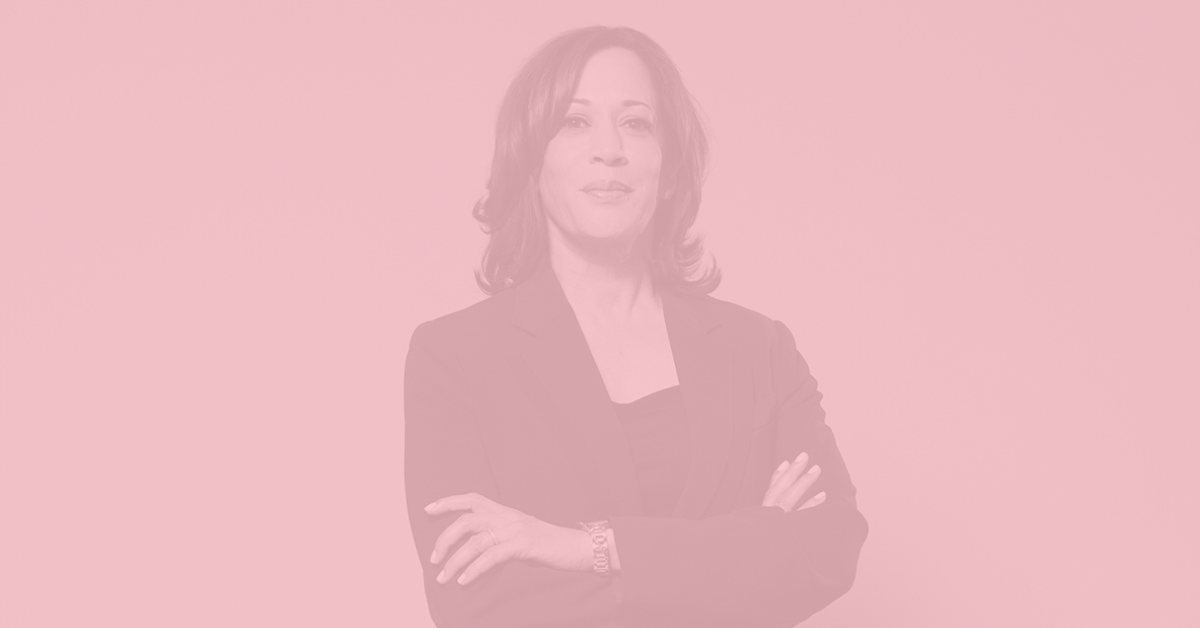On Kamala Harris & Representation Politics
This piece was originally published in the Hill Times.
Last week, U.S. Senator Kamala Harris broke glass ceilings when she was announced as Joe Biden’s Democratic running mate in the upcoming U.S. presidential election. There is no doubt that becoming not only the first woman vice-president, but also the first Black and the first Asian vice-president would be a historic achievement in a political system and a country built upon and maintained by gender and racial hierarchies; which is exactly why her candidacy is coupled with long-standing frustrations—and even hesitance—among many with representation politics and how they operate to restrict women’s voices in politics.
Representation politics is when the voices, opinions, and perspectives of citizens, especially those with intersecting marginalized identities is expected or assumed to be “present” when a member of that marginalized group gains access to power and influence within a dominant system, which explains our collective excitement over a biracial woman like Harris being the first Black woman vice-presidential candidate and the first Asian woman on a major-party national ticket.
But, coupled with the reality that marginalized groups are not a monolith, meaning that they consist of people with varying experiences, backgrounds, and political views, and that it takes a critical mass of at least 30 per cent for any group to be successful in advocating for a certain agenda, it becomes clear why many Black and racialized women are skeptical about whether Harris’ candidacy, considering her voting record, truly represents a shift in the Democratic Party or the broader political spectrum. Her candidacy is also shadowed by the fact that she will not only have to persevere in the face of the sexist and racist media coverage and harassment that has become a part of the job for many women in politics, but that she is one the same ticket as a man who has been accused of sexual violence numerous times.
But that is exactly how representation politics fails us, the voters, when candidates and elected officials subsequently maintain the status quo. It creates the expectation that as long as someone who looks like us or has the closest proximity to our experiences holds a position of power, our collective needs and agendas will be represented. Concurrently, it creates the expectation that marginalized candidates, especially Black, Indigenous, and racialized women, should simultaneously represent the entirety of their communities, while being the first, and sometimes only, member of their communities in institutions of power that were not made to accommodate them. Representation politics is exactly that, representation. A game of optics that merely creates an illusion of inclusiveness while reducing marginalized women into pieces of rope in a tug of war where they have to mitigate the tensions between their own experiences and agendas, and the impossible expectations bestowed to them by a political system that continues to disenfranchise and harm their communities.
It has been especially frustrating to watch Canadians’ reaction to Harris’ candidacy when the last Black woman to be elected to Parliament, Celina Caesar-Chavannes, decided not to run for a second term after four years of dealing with white-supremacist harassment not only in cyberspace, but in the heart of our democracy, the House of Commons, where her experiences as a Black woman were shamelessly undermined by one of her own colleagues. For a political landscape that boasts about representation politics and our 50-50 gender-balanced cabinet, which still leaves out gender-diverse Canadians, we sure do have a tendency to conveniently forget how we treat Black, Indigenous, and racialized women when they not only access positions of power, but when they do indeed become actively involved in decision-making processes or represent their communities. In fact, Canada’s treatment of Black, Indigenous, and racialized women in politics has evolved a step farther than representation politics and turned into full-on tokenism.
Tokenism, within the context of politics, is when institutions make symbolic efforts to include members of underrepresented groups when they have no interest in challenging the systems of oppression that contribute to their marginalization or meaningfully engaging them in decision-making. We saw this when Caesar-Chavannes questioned whether people who so easily dismiss racism and bias in decision-making are fit for creating policies and making decisions that benefit the most marginalized communities. And again, when the public and political actors vilified Jody Wilson-Raybould as an irrational Indigenous woman once she began to act with “integrity” and “in accordance with the laws and traditions” of her “Big House” amidst the SNC-Lavalin scandal.
The ongoing racism and sexism experienced by Black, Indigenous, and racialized women in politics combined with the overwhelmingly positive reaction to Harris’ candidacy attest to the fact that an intersectional conversation on women’s political leadership is long overdue. This is not about filling seats in the White House or the House of Commons, but the aspirations of thousands of Black, Indigenous, and racialized women to meaningfully engage with decision-making and political power in ways that uphold their integrity and honour their communities. And I, for one, can’t wait for the day when Canadian politics is ready for that.
